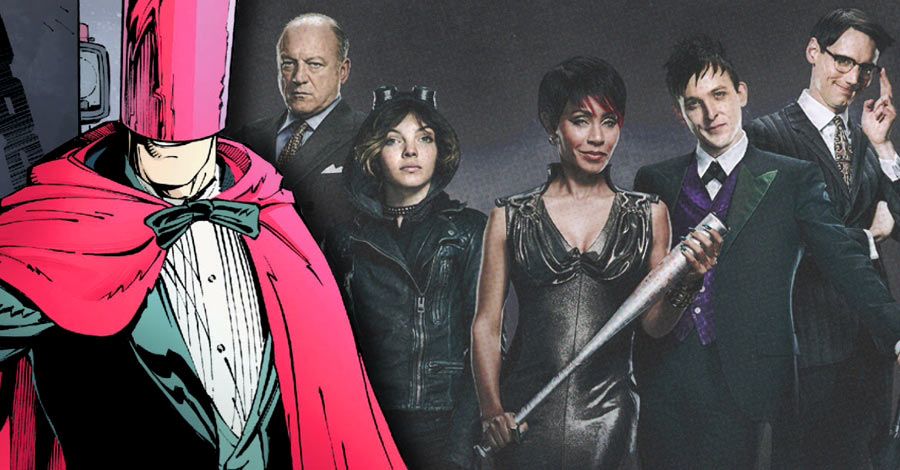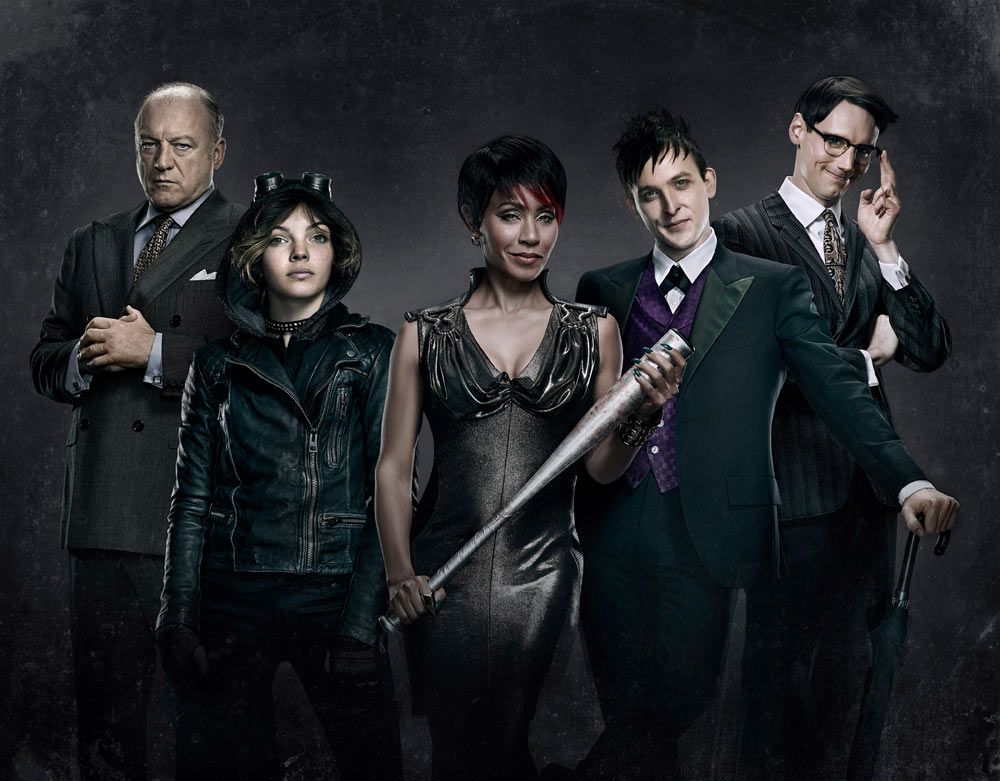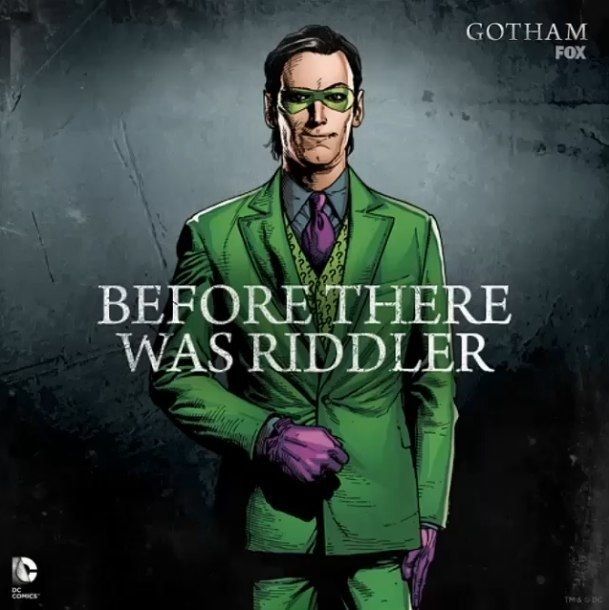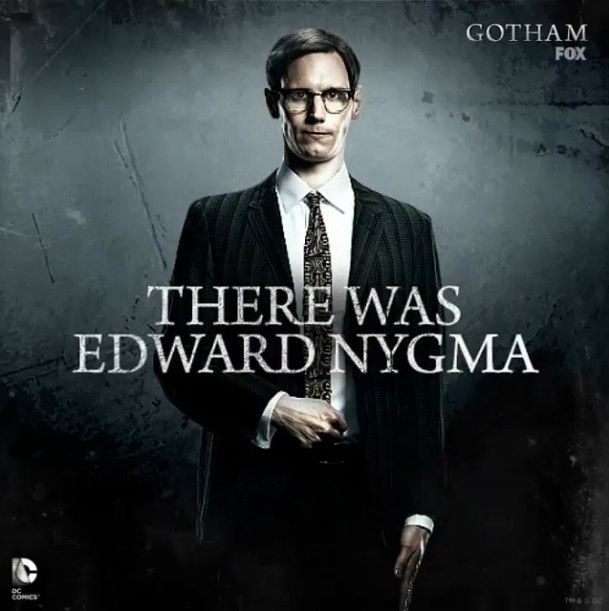Like its comic book-based sister city, TV's "Gotham" has shown itself to exist in a very unpredictable urban landscape, filled with dimly lit skyscapers, dark corners and blind alleys -- but creator/executive producer Bruno Heller knows every twist and turn by heart.
RELATED: Morena Baccarin Talks "Gotham," Jim Gordon and Keaton's Batman
With the FOX series -- set in the era of violence, decay and corruption that immediately followed the murders of Thomas and Martha Wayne -- recently picked up for a second season, Heller has found himself with even more room to build out the show's pre-Batman world. With ten episodes remaining in Season One, the writer-producer offered CBR News a tantalizing glimpse at the road ahead, including the development of Edward Nygma into the Riddler, the continuing growth of Bruce Wayne and Alfred's bond and what may be the show's first foray into the world of costumed villains with the eventual introduction of Red Hood.
CBR News: Tell me about what's been the fun discovery as the show has gotten further into production, to the point where you are now. What was the excitement of the discoveries you made along the way?
Bruno Heller: I guess the fun thing about the show is, once it got up and running, the characters and the city itself took on a life of their own. So really, the stories have been telling themselves. The characters have been taking the story by the scruff of the neck and pulling them forward. I think, more specifically, it's been wonderful to see a new young actor like Robin [Lord Taylor] just grab hold of a role and shake it and make it his own.
Every day on the show, because it's such a full and vibrant world, it feels like we can go anywhere with the story. When I started the thing, I was very concerned that it didn't fall into a pattern, that it didn't become formulaic or procedural. And so, it's been a great joy. For all the writers involved, it's like having a sandbox full of a hundred different toys rather than just one single gimmick. Which, especially on network TV, that tends to be what you have to work with. Whereas with this, it's an epic. And the deeper we get into it, the more exciting the world is.
Give me a sense of the back half of the season as far as the tone, plotlines and who's going to rise to more prominence.
Well, Morena Baccarin, playing Leslie Thompkins, has arrived. She's going to be a big figure in Gordon's life. We're going to see a slow but dramatic change in the Riddler story. Ed is going to be confronted with some serious troubles that start changing his character in a very profound way. I think for Gordon, even as he starts, to a degree, conquering the politics of the GCPD and acquiring the kind of power and leverage he needs to make changes, his personal life and his moral balance are on much shakier ground. So I think towards the end of the season, you're going to see someone who is at the height of his career, but personally at a very low ebb -- or at a very dangerous ebb.
Here's the thing -- which I'm not used to because I've been working previously on "The Mentalist," where you can kind of tell people the whole season and you're not giving anything away really, because it's, hey, we're going to solve crimes. With this, I'm very careful, I don't want to give away too much story because, more so than most shows, this is the joy of story, the joy of storytelling, the joy of hearing stories. And that's the DC Universe. Anything can happen. The unexpected with happen. The tragic will happen. The funny will happen.
Can you say if will it remain a costume-free season?
That's a good question. Especially now that we have a pick up, I always take a long-term view of a show. I'm looking at several years. So we're in no hurry to [do that] -- there's going to be an episode that involves the Red Hood, which picks up that strand, the costume strand, and sort of gives a kind of philosophical base, if that's not too pretentious a word. Why costumes? What's the power of costumes? What's the power of a mask? All of that groundwork will be laid sort of culturally for that side of the DC Universe before we start rolling into the more spectacular spandex type of deal.
Because -- I can't remember where I read it -- the reason that the comic book characters wore costumes is because in the very rough printing that they used to have in newspapers, that's the only way you could make a character pop. "Oh, that's Batman, that's Superman, that's Dick Tracy." On TV, you don't need that same color and signature to make people pop. It's the characters that pop. So we're never going to be a full-on costume drama. We're going to be a full-on character drama. Like Batman, there's the super powers, super will, and there's super strength, but only on a human level. Not on a supernatural level. It's very important, again, for the longevity of the show, that we take this step by step.
Tell me a little bit about what you have planned for Bruce and Alfred, because lately we've seen those two characters become more and more integrated into the action of the show.
My first thought about Bruce and Alfred was that Alfred must have been a right piece of work to allow and encourage and enable Bruce Wayne to become Batman. So that was the nut of the thing. But this is not a guy -- he's not the fragile old geezer that the original Alfred was. He's much more in the vein of the Michael Caine Alfred. But as the season rolls on, he becomes more and more of a genuine parent. And there's all the conflict and intention that underlies the real parenting relationship, as opposed to a master-servant relationship.
But again, that's one of those [things] -- Bruce doesn't turn into Batman for some years, and this is very much the life of a young kid and those changes. Everyone grows up slowly. It's not a series of spectacular transformations. He's not bitten by a spider. It's an education. And that's really how we're playing that. Especially because we have such a brilliant young actor in David Mazouz, and a wonderful comic, but still very real and mature person, in Sean Pertwee. They're a wonderful combination, so we're really going to take that in a very natural, step-by-step direction.
Did the second season pickup change the plans at all for Season One, or alter your storytelling approach for the remainder of the season? Did you want to set up something big for Season Two as you moved toward the end?
No, because I always take the optimistic view. I assume, when we start, that we're going to get picked up because we're making it work. So again, because we're planning far ahead, you have to with these kind of epic storylines.
What it does is, it makes the other kind of planning for Season Two much easier. Hiring directors, getting ahead of the scripts -- that kind of thing. But, it also means that it allows us to double-down on the strengths of the shows that we know are going in the right direction. We'd always planned for the end of the season to be as big and spectacular and as shocking and as frightening and as sensational as it possibly can be. And we're going ahead with that plan.
Are there any characters that you were quietly planning for Season Two that you now can say, "Yes, we'll be introducing that one when we return?"
No. I wish I could!





